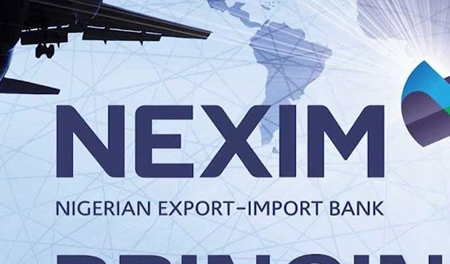- As LCCI advocates improved business environment
Amidst the dwindling fortunes of the oil and gas sector exacerbated by the impact of COVID-19 pandemic, the Federal Government at the weekend expressed concern over Nigeria’s poor records in exportation of manufactured and value added products, stressing such developments pose grave danger to its balance of trade and payment positions. This was as it lamented that crude oil still accounts for over 95 percent of the country’s export earnings.
Speaking at an export facilitation workshop organised by the Association of Business Editors in Nigeria (ABEN) themed; Strengthening Economic Recovery in a Pandemic Through Aggressive Non-oil Export Drive: Prospects and Challenges in Lagos, at the weekend, Head of Strategic Planning at NEXIM Bank, Mr Tayo Omidiji, who represented the Managing Director of the bank, Mr Abubakar Bello, stated that while the Nigerian economy remains diversified, its external sector is still dominated by oil and gas trading which accounts for over 90 per cent of foreign exchange earnings.
He explained that Nigeria recorded trade deficit of N7.38 trillion in 2020, compared to a surplus of N2.23 trillion in 2019, reflecting the confluence of 17.32 per cent increase in import and a 34.75 per cent decline in export during the period.
Omidiji recalled that the nation’s total trade declined by 10.32 per cent in 2020, as crude oil export shrank by 35.71 per cent to N9.44 trillion in 2020, while the non-oil export also declined by 32 per cent reflecting the colossal collapse of economic activities during the period of the pandemic in 2020. He said that agricultural commodities equally recorded price declines owing to COVID-19 related factors that affected several sectors of the economy.
He however blamed low productivity, sub-standard packaging, inadequate facilities, dearth of technical-know-how on products development for the continued limitation of Nigeria’s non-oil sector on the global market space.
On what the export development bank did to ease the impact of the pandemic on its stakeholders during the pandemic, Omidiji listed the reduction of interest rate on its loans from 9 to 5 per cent, extending moratorium on loans to exporters and helping exporters to markets that were less impacted by the pandemic as well as developing risk mitigation instruments such as Export Credit Insurance & Investment Guarantees in addition to introducing Special Intervention Schemes to exporters in the market.
“What we should expect from NEXIM is increase in taxation because what we are doing right now is to grow our funds to be able to intervene more aggressively in the export sector. For anything. what we need right now is to further diversify the economy.
So if we diversify the external sector, it will increase the number of commodities in our export basket and even increase the number of buyer countries where our exporters can export too and I think that would also help in our efforts to further boost revenue from the non-oil sector”, He explained.
He assured that NEXIM will continue to work with other governmental agencies to implement initiatives aimed at mitigating the impact of the pandemic on the non-oil export sector.
In his presentation, the Director General, Lagos Chamber of Commerce and Industry (LCCI), Dr Muda Yusuf, called on the Federal Government to improve the operating environment for a competitive non-oil sector as such clearly does not exist at the moment, particularly by allowing exporters free access to their funds.
Yusuf observed it was becoming difficult dissecting the performance of the non -oil sector from the general performance in the real economy with the challenge of competitiveness being a major constraint.
His words, “When you talk about exports, you are talking of international business and in the international business arena, what is most paramount is the competitiveness of your exports which is actually quality competitiveness and price competitiveness. Of course, we are struggling with these two parameters. Secondly, look at the structure of our export basket, as we speak, oil and gas still account for about 95 per cent of our export earnings and so if you take oil and gas out of exports, you are practically not exporting anything and so we have a very long way to go as far as export development is concerned. It is about building the capacity of this economy to be productive, competitive and to be inclusive, these are the things we need to do urgently”.




